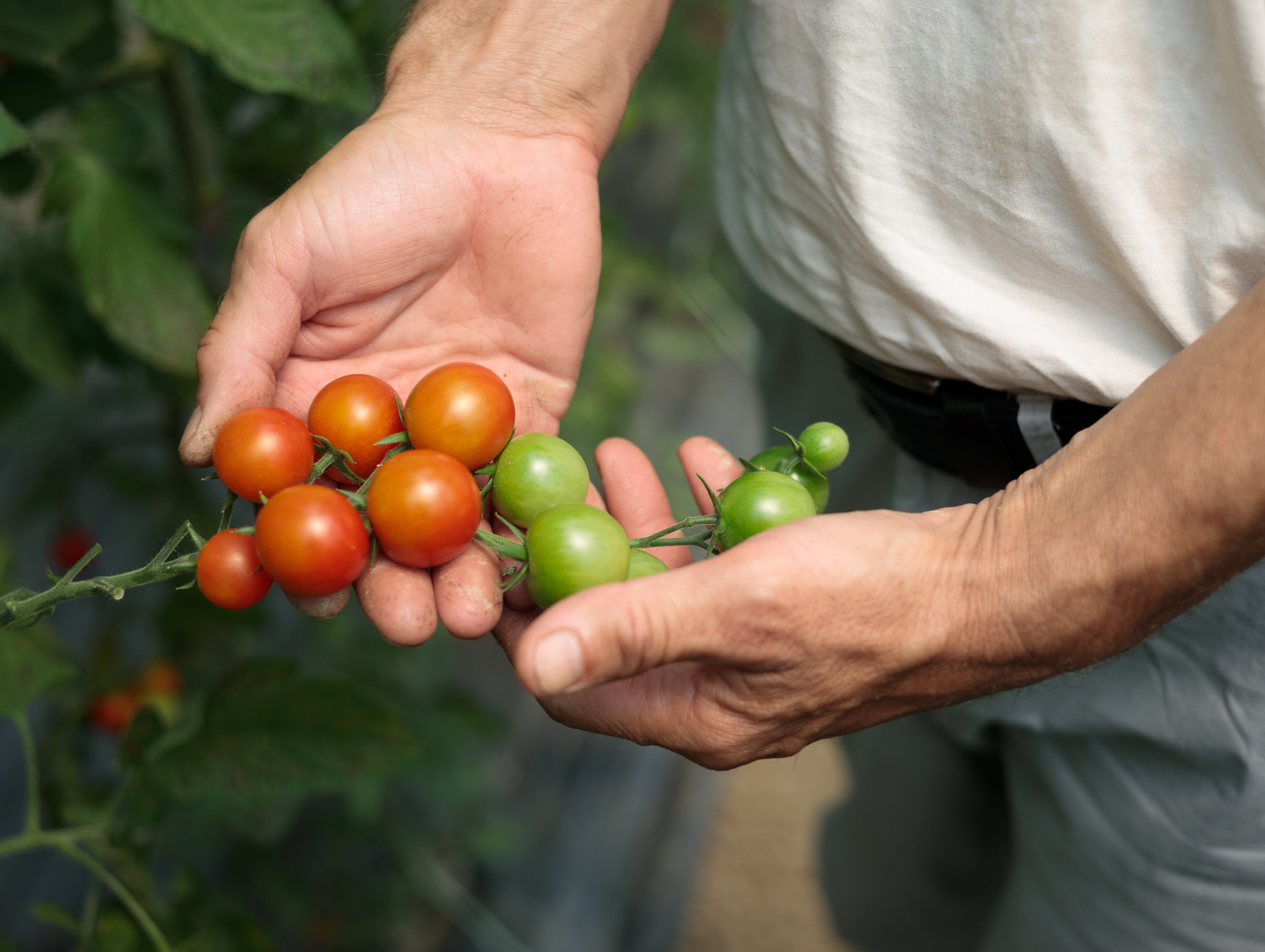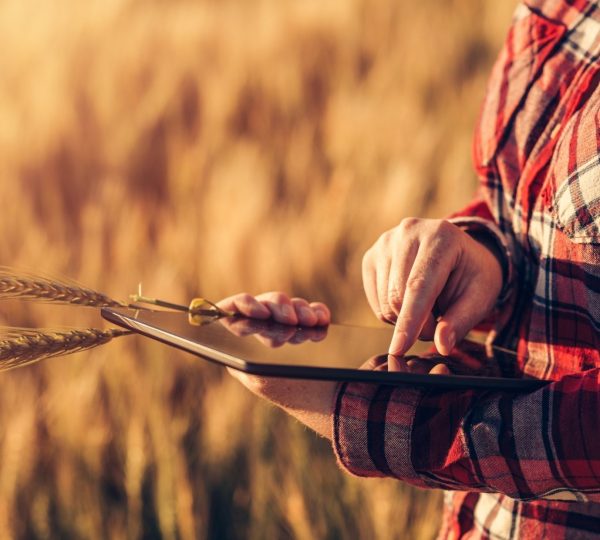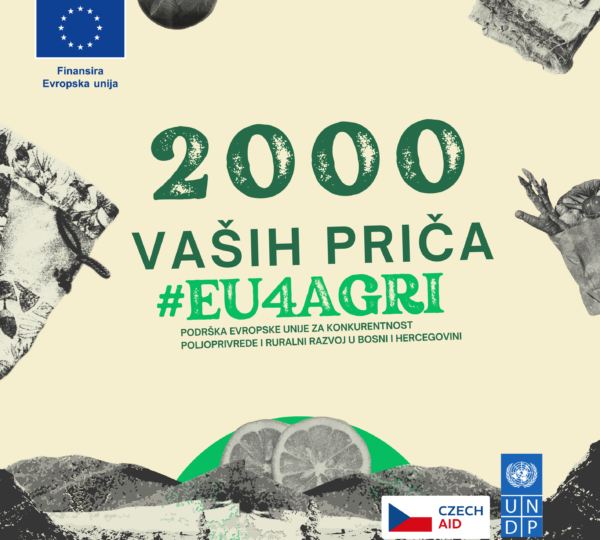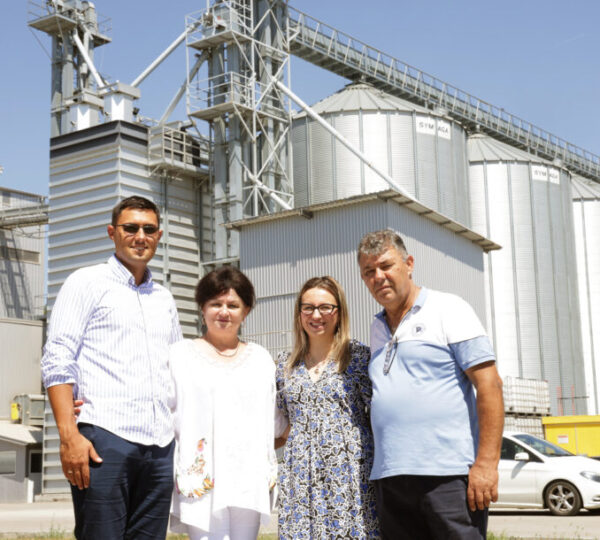Thanks to the European Union, agricultural production has grown in the company “Agrofood”

With new automated irrigation and heating systems, pumps, and wells supplying water to the greenhouses, the Agrofood Agricultural Cooperative from Konjević Polje continues to expand its production of seedlings and vegetables—a steady growth trend since its establishment nine years ago.
Senad Omerović, Director of Agrofood, explains that the irrigation systems, improved thermal insulation in a 700-square-meter greenhouse, and the construction of a brand-new 400-square-meter greenhouse were made possible with the support of the EU4AGRI project. This support has enabled significant production growth this year.
In addition to agricultural production on 35 dunams of land, 14 greenhouses, and one glasshouse, Agrofood is the only certified organic producer of seedlings for 15 different types of vegetables, including several varieties of tomatoes and peppers, cucumbers, watermelons, eggplants, and other vegetables, and more recently, various types of flowers.
Agrofood purchases all pesticide-free agricultural produce from local growers, directly contributing to the sustainability of their production. This approach not only ensures stable and fair purchasing conditions for producers, but also gives them long-term market access, encourages organic and environmentally friendly farming, and enhances their economic resilience. On the consumer side, it offers high-quality, safe, and healthy products, free from harmful chemical residues and with no negative impact on the environment. In this way, Agrofood actively contributes to the development of local agriculture, the protection of consumer health, and the preservation of natural resources.
“Since we were producing seedlings, we found ourselves in a situation where demand was exceeding our production capacity. The greenhouse we were using was inadequate—it lacked proper insulation, the foil coverings were worn out, and we didn’t have systems for heating, misting, or irrigation, so we watered everything manually using hoses,” says Omerović. “I came up with the idea to expand and modernize our operations and automate everything. Now it’s much easier to produce 300,000 seedlings than it used to be. Previously, we produced around 150,000 per year.”
When he returned to his native Novo Selo two decades ago, former taxi driver and electrical technician Senad Omerović was unemployed. He and his wife Fatima had few options, so they began farming. For several years they grew gherkins and raspberries and worked with a cooperative in Zvornik, later building their first greenhouse with the help of donations for returnee families like theirs.
The production they have today is a dream come true for Senad and Fatima—one they never imagined when they began farming after returning from Lukavac in 2001, where they lived with their two children and his mother following the war in Srebrenica.
The fruits of their hard work were first visible in their 100-square-meter greenhouse, where they produced 2.5 tons of tomatoes—quickly sold in the village and surrounding areas.
“In 2008, I started considering a new location and came up with the idea to move here to Konjević Polje, as it is at a crossroads and right beside the main road,” says the agricultural producer, who is now expanding his established healthy food production with the support of the EU4AGRI project and European Union funding.
For the past 13 years, on 35 rented dunams, initially through a registered farm and later as the director of a cooperative founded with four other partners, he has been growing vegetables, seedlings, and corn for human consumption. His products supply markets in the Birač region, as well as companies in Sarajevo, Visoko, Banja Luka, Mostar, and other parts of Bosnia and Herzegovina.
Years of expanding production and diversifying the product offer leave little free time. Still, in recent months, Fatima has taken on flower planting in addition to her many responsibilities. Agrofood now offers new types of seedlings such as marigolds, valerian, dahlias, petunias, and other flowers.
Since registering as a cooperative, Agrofood has employed workers and engaged subcontractors who produce jams, eggs, and other homemade food items that are included in their product offering.
Significant effort was also invested in meeting requirements and obtaining certification for organic production, which Omerović emphasizes as a major achievement.
The total value of the investment supported through the project is approximately BAM 63,325, with BAM 49,830 co-financed by the European Union.
So far, the EU4AGRI project has supported 60 investments by Bosnian and Herzegovinian farmers and companies, with a total investment value of BAM 14.8 million—of which the EU financed BAM 8.65 million.
Through the EU4AGRI initiative, the EU supports strengthening the competitiveness of agriculture and rural development in Bosnia and Herzegovina. The EU4AGRI-Recovery project assists Bosnia and Herzegovina in mitigating the economic effects of the COVID-19 pandemic on agri-food companies and rural tourism operators, ensuring the continuity of their operations. Meanwhile, EU4BusinessRecovery helps reduce the impact of the pandemic on agricultural and tourism enterprises as well as micro, small, and medium-sized enterprises. The European Union has allocated EUR 28 million for all three projects.














